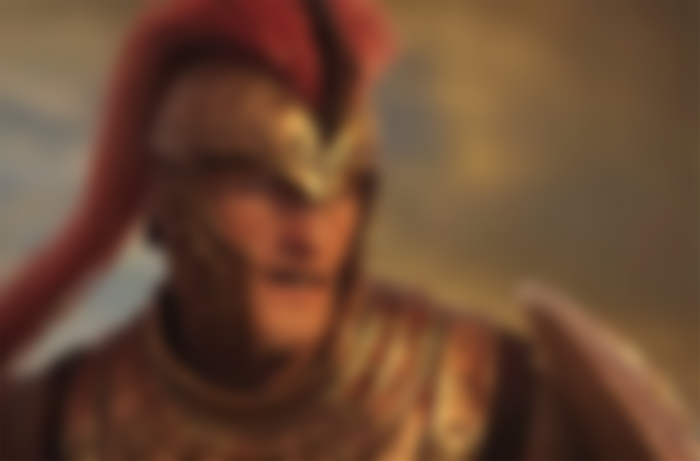I am here with our A Total War Saga: Troy Review article, which reached 7.5 million players on the day it was released.
The newest game in the Total War series, A Total War Saga: Troy aims to be a production that will embrace both fans of the series and players who want to enter the series. Let's examine together how Troy happened: A Total War Saga, which is about the Trojan war that almost all of us are familiar with in ancient Greek times.

Pros
+ A different game experience with each hero of both sides
+ Not being bound by just one condition to win the script
+ Realistic interpretation of mythological beings
+ The ideal game to enter the Total War series
+ Smooth optimization
+ Turkish language option
Cons
-The number of units may be too low for Total War fans
- Economy runs itself after a while without your intervention
- No Multiplayer option on output

Platforms
PC
Producer - Publisher
Creative Assembly - SEGA
Game Type
Turn-Based Strategy, Strategy
The Total War series is generally known for its games that successfully reflect historical events. The series has so far appeared in many different games specific to regions such as Medieval Europe, Japan, and Rome, with games that will convey historical events in the most accurate way. In addition, two fantasy-themed games that have successfully adapted the Warhammer universe were released under the name Total War. A Total War Saga: With Troy, we return to the Bronze Age and have the opportunity to experience the Trojan War, which is also the subject of Homer's Iliad.

The 10-year war of the Achaeans under the leadership of Menelaus and his brother King Agamemnon, who accepted the act of Paris, the Trojan, who ran away with Helen, the wife of the Spartan King Menelaos, and made her own wife, is the main story of the game. We choose between the Akhalı and the Trojans and enter the game by taking one of the four heroes. While each hero has their own story line and specific goals, we play to eventually win the Trojan War, our ultimate goal.
We said that both sides have four special heroes. On the Danaan side (Greek side) are the legendary hero Achilles, the Mycenaean King Agamemnon, the Spartan King Menelaus and Ithica lord Odysseus. On the Trojan side are Prince Hector and Prince Paris, as well as Aeneas, the son of Aphrodite, and Sarpedon, the son of Zeus. The difficulty level of the game is different for each character and we can use some special units with the heroes we choose. Heroes also have special tasks.

Minimum System Requirements
Operating System: Windows 7 / 8.1 / 10 (64-bit)
Processor: Intel Core 2 Duo 3.0 GHz or Intel i7 8550U 1.80GHz
Memory: 4 GB / 6 GB (4 GB for external graphics cards, 6 GB for integrated graphics cards)
Storage: 26 GB
DirectX: Version 11
Graphics: NVIDIA GeForce GTX 460 1GB / AMD Radeon HD 5770 1 GB / Intel UHD Graphics 620
Recommended System Requirements
Operating System: Windows 7 / 8.1 / 10 (64-bit)
Processor: Intel Core i5-6600 or AMD Ryzen 5 2600X
Memory: 8 GB
Storage: 26 GB
DirectX: Version 11
Graphics: NVIDIA GeForce GTX 970 / AMD Radeon R9 270X 2 GB

The special missions of the hero we have chosen are one of the things we need to pay attention to in order to achieve victory in the game. Defeating all your enemies and taking control of the map allows us to reach the end called Total War Victory. In order to achieve the victory called Homeric Victory, we have to fulfill the duties of our hero. With Achilles, who is ready to fight anyone who questions his might, special missions such as defeating every enemy in a duel, Hector and Paris brothers 'struggle to get in the eyes of their fathers, and Menelaus' taking back his wife Helen, enable us to win the Homeric Victory.
A Total War Saga that addresses the Trojan War: Troy is the oldest game in the history of the series. When we take into account the scarcity of historical information about the Bronze Age and the mythical / fantastic elements found in the ancient Greek legends, we see a slightly more creative approach than other games. Although it contains elements from ancient Greek mythology, it did not choose a completely fantastic route as in Warhammer. We'll go into more detail about how the game blends mythological elements with real stories. I can already say that the producer has done a successful job.

You Said Centaur, But This Horse Troop
Although the Trojan Horse comes to mind first when the Trojan War is mentioned, horse troops were not a common combat unit during the Bronze Age, and even their first appearance in the game takes a long time. In battles, we usually control an army of infantry units. Infantry units are divided into three: Light, medium and heavy units. Units, whose speed and durability change according to the weight, become an important factor in our victory according to the length of the war. The fact that the number of units you can buy in our army is less than the old games, it helps beginners to grasp the battles more quickly.
It is unthinkable that there were no mythological elements in the ancient Greek period. I told you that the producer Creative Assembly has done a very successful job on this subject. Adding the influence of gods and mythological unions to the game, the team also managed to stay in the real world. Seven different gods from Greek mythology, including Zeus, Ares and Aphrodite, protect their servants who please them, and they do not hesitate to cause problems to those who are dissatisfied. The intervention of the gods is not in the form of extraordinary events such as lightning on the head of the enemy, but in the form of invisible effects such as the enemy's sacrifice to various natural events or the increase in the combat strength of the army he loves.

There are also mythological units that we can add to our army. While these units are nominally mythological beings, units of slightly more powerful mortal humans. For example, the Minotaur units, half bull and half human, are mentioned in the game as very great warriors wearing ox skulls. Similarly, the Centaur (Centaur) units appear to be the closest cavalry units at that time. You can have mythological units by meeting in some areas on the map or depending on how well you are with the gods.
The economy, which reverts almost entirely on gold and similar currencies in the old Total War games, is gaining variety with A Total War Saga: Troy. Resources divided into five as food, wood, stone, bronze and gold, we need different resources for different works. While wood is important in building production, it is necessary for the production of bronze and stone units. While gold gains a very important place in the future, food is always our most important resource. We have a lot of additional work to do outside of the game's battle screen, when we say carefully using the resources we have, keeping us pleasant with the gods, and balancing diplomatic relations.

Achilles' Heel
"You counted so many things, aren't there any bad parts of this game?" you might ask. There are various things that we can call relatively bad. For example, the number of units is much less than in other Total War games, and this makes the battles not suitable for a lot of strategic diversity, especially in the early stages of the game. While there are improvements in diplomacy over previous games, don't expect performance at the Civilization level. Interesting movements of artificial intelligence also caught my attention from time to time. The self-confidence of the weak lords who make "you will come on the road" style speeches when I refuse and ask for hundreds of units of resources without any response is amazing.
The game does not have a multiplayer option yet. The producers only released the game with a single player mode, and we have to wait until November for the multiplayer mode. While it may seem like a fun idea to try different combinations of heroes with friends and fight against opponents, it is debatable whether it is worth waiting for the multiplayer mode that will come in a time when new games come out collectively.
My Personal Assessment
A Total War Saga: Troy is a great choice for players who want to enter the series. I cannot go without saying that the translations were done very carefully. Although it is a little striking that the names of the mythological units are written entirely in such as Cyclops, these are the names used in the original translations. At least inconsistent localizations such as Achilles' speaking with a Thracian accent have not been made.
Strict followers of the series may be disturbed by the decrease in units and combat tactics with the effect of the period in which the game is set. The multi-resource economy and improved diplomacy features manage to compensate for the deficiency on the battlefield to some extent. The fact that each hero we choose has a different gameplay and has its own struggles reduces the feeling of doing the same things in each story.

If you want to experience Homer's Iliad epic for yourself and challenge Achilles and Hector in front of the Trojan gates, it's hard to find a better game than this game. If you want, it is also possible to continue with different heroes and achieve an alternative end to history. In addition, with the Amazon DLC, which will be added to the game in the future, the all-female Amazon tribe will be added to the game as playable. Moreover, users who perform the necessary operations in the Epic Store will be able to get this package free of charge.
The game, which was first offered for sale on the Epic Games Store, will be available on Steam after a certain time. If you've added the game to your library, which is available for free on the day of release, definitely give it a shot. A Total War Saga: Troy was a good game with both language support and easy to learn gameplay. It may not be the best Total War game for die-hard followers of the series, but it's a successful turn-based strategy game that shows better things to do for future games.









I may have to check this out. I've actually never played a Total War game, but I'm very fond of the Trojan War.